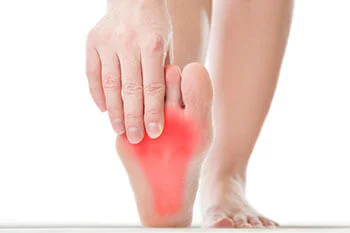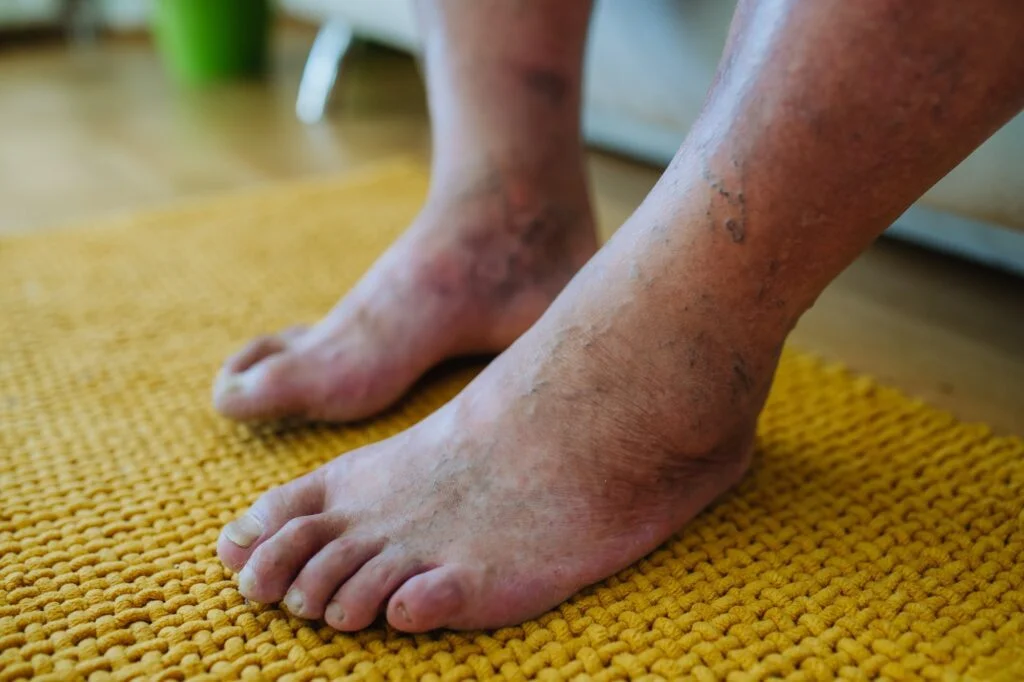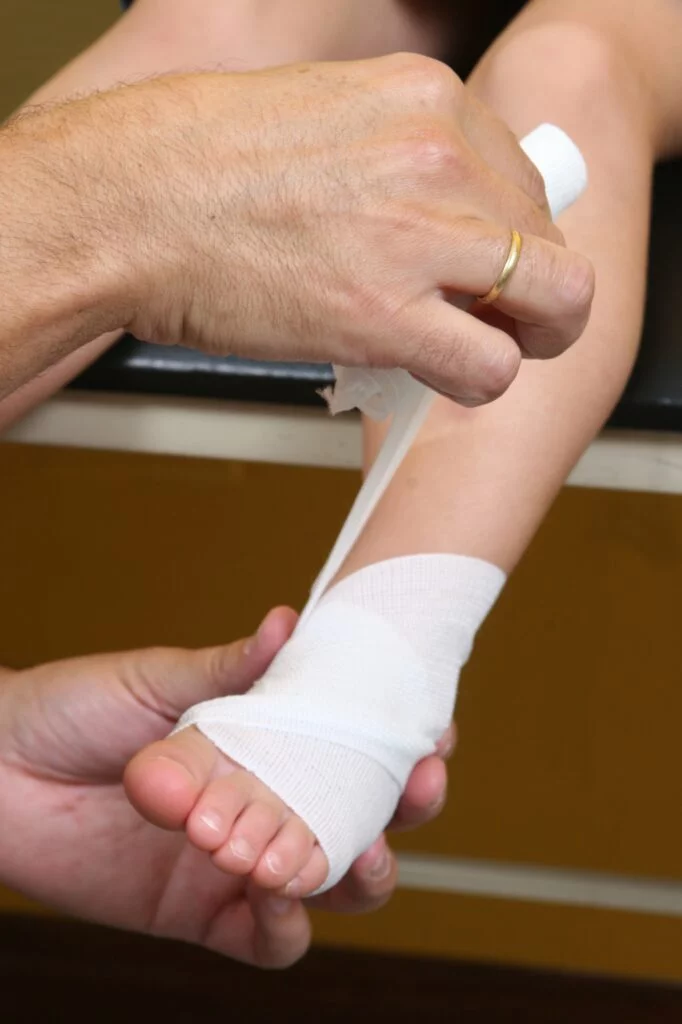Table of Contents
Overview
Diabetic Neuropathy
More than half of people with diabetes will eventually suffer from diabetic neuropathy. Diabetic neuropathy is nerve damage to the feet due to too much blood sugar. As this decreases the circulation to the feet, the symptoms include:
- Loss of sensation or feeling in the feet
- Tingling
- Balance problems
- Burning pain
If you are experiencing any of the above symptoms, don’t assume it’s age-related. Call one of our podiatrists! We will evaluate your symptoms and recommend a personal treatment plan.
Treatments for diabetic neuropathy include a healthy diet, regular exercise, avoiding processed sugars, and preventing injury. Medication is often used to help manage diabetes-related neuropathy, as there is no cure. Some studies have also shown that B vitamins can help treat neuropathy since they support the nervous system.
We may also recommend Epsom salt baths and compression/neuropathy socks.
Diabetic Ulcers & Wounds
Diabetics are at a greater risk of developing ulcers on their feet, which are sores that can penetrate all the way to the bone if left untreated. They are most often seen on the big toes or on the balls of the feet. Any wound on the foot – big or small – also poses a risk for diabetics. With poor blood circulation in the lower extremities, the body’s natural ability to heal is hindered.
As most diabetics lose the sensation of feeling in their feet, ulcers and wounds can worsen quickly and become infected if they aren’t noticed. This, therefore, increases the potential for needing amputation.
Diabetics should routinely look out for…
- Open sores
- Redness
- Swelling
- Any drainage on their socks
- An unpleasant odor
Any of those symptoms would be enough to immediately call one of our podiatrists.
Treating Ulcers & Wounds
Diabetic ulcers and wounds are difficult to heal, and the process takes a long time – often several weeks or months. However, our board-certified podiatrists can help.
- Wound Treatment: With any wound, we will recommend controlling your blood sugar levels to help the body’s natural ability to heal. We will also assess your vascular system to improve blood flow and perform a wound debridement to clean and disinfect the affected area.
- Ulcer Treatment: For ulcers, we will remove any dead or infected skin or tissue and apply any needed medication before dressing the wound. We may also recommend braces, castings, footwear, or crutches to take pressure off the area. In some cases, we may even recommend a wheelchair. We will also assess your blood circulation levels.
Signs It’s Time to Call Us
As a diabetic, assessing your foot health must be built into your daily routine. Each day, check for:
- Swelling
- Numbness
- Skin color changes
- Pain
- Sores
- Calluses or corns
- Fungal toenails
If you notice any changes to your feet, don’t wait. Call us! Early detection can prevent infection and amputation!
Prevention
While ulcers and slow-healing wounds can be scary prospects for a diabetic, the good news is that Type 2 Diabetes can be reversed. Switching to a whole foods diet and avoiding processed sugars can go a long way in reducing your symptoms and chances for complications.
There are several other tips to controlling your diabetes and how your feet are affected:
- Check your feet daily! Early detection reduces amputation, so any change in your feet is worth mentioning to your podiatrist.
- Always wear clean socks and change them daily.
- Wash your feet daily in warm water (avoid hot water as you may unsuspectingly burn your feet).
- Protect your feet from unnecessary damage or injury by wearing well-fitting shoes.
- In the wintertime, or whenever your skin is dry, moisturize! Even cracked skin from dryness can morph into an open wound.
- Trim your nails straight across to prevent ingrown toenails – or better yet, have one of our podiatrists cut your nails for you!
- Exercise regularly; improving your overall health will improve your foot health!
Most importantly, keep regular visits with one of our podiatrists. Diabetics should be seen at least twice a year, as our trained professionals can help detect any potential complication and therefore help prevent infection and amputation.
At the first sign of any infection, inflammation, or foot change; don’t hesitate to call us! Our highly trained and experienced podiatrists have ample experience with diabetic foot care and limb salvage. We are here to help!
Diabetic Foot Care - FAQs
How does diabetes affect the feet?
How should diabetics take care of their feet?
Why should diabetics regularly see a podiatrist?
Looking to schedule an appointment with a physician?
Call University Foot & Ankle Institute or book an appointment online today for effective solutions to your painful hammertoes.
Dr. Bob Baravarian DPM, FACFAS is a Board-Certified Podiatric Foot and Ankle Specialist. He is an assistant clinical professor at the UCLA School of Medicine and serves as Director of University Foot and Ankle Institute.
Dr. Baravarian has been involved in athletics his entire life and played competitive tennis in high school and college. He has an interest in sports medicine, arthritis therapy, and trauma/reconstructive surgery of the foot and ankle. He is also fluent in five languages (English, French, Spanish, Farsi, and Hebrew),






